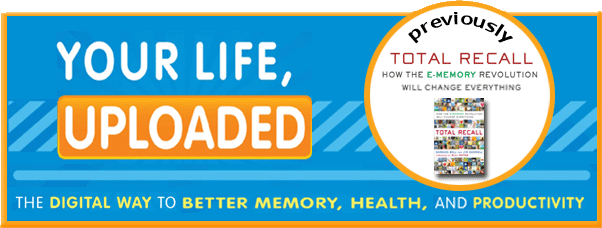Wipe The Slate Clean in 2010, use the Web 2.0 Suicide Machine
 Friday, January 15, 2010 at 2:38AM
Friday, January 15, 2010 at 2:38AM Lifelogging is what we advocate. Life Blogging is what many of us also engage in indirectly by being a member of a social network that allows us to blab about anything we do, hear, see, think, etc. and converse with 10s, 100s, or even 10,000s of friends we never knew. At some point the distraction may be just too great and you decide to get a life. This means you leave those sites and delete your friends, etc. Here's how to do it... by removing certain parts of your life from cyberspace, according to this article in Tech Crunch http://www.techcrunch.com/2009/12/31/web-2-0-suicide/
"Are you tired of living in public, sick of all the privacy theater the social networks are putting on, and just want to end it all online? Now you can wipe the slate clean with the Web 2.0 Suicide Machine . (Warning: This will really delete your online presence and is irrevocable). Just put in your credentials for Facebook, MySpace, Twitter, or LinkedIn and it will delete all your friends and messages, and change your username, password, and photo so that you cannot log back in.
The site is actually run by Moddr , a New Media Lab in Rotterdam, which execute the underlying scripts which erase your accounts. The Web 2.0 Suicide Machine is a digital Dr. Kevorkian. On Facebook, for instance, it removes all your friends one by one, removes your groups and joins you to its own “Social Network Suiciders,” and lets you leave some last words. So far 321 people have used the site to commit Facebook suicide. On Twitter, it deletes all of your Tweets, and removes all the people you follow and your followers. It doesn’t actually delete these accounts, it just puts them to rest."
 lifeblogging,
lifeblogging,  social netwoks in
social netwoks in  Challenges,
Challenges,  MyLifeBits
MyLifeBits 